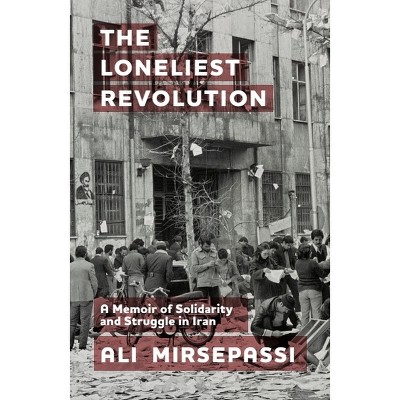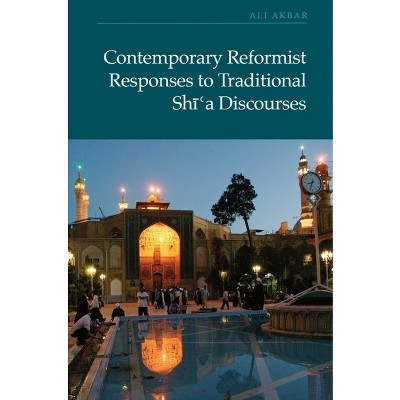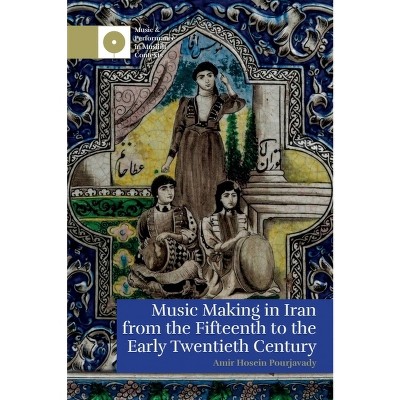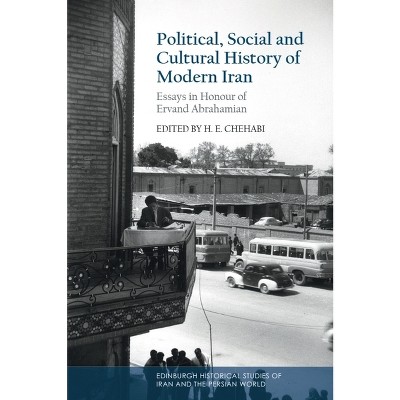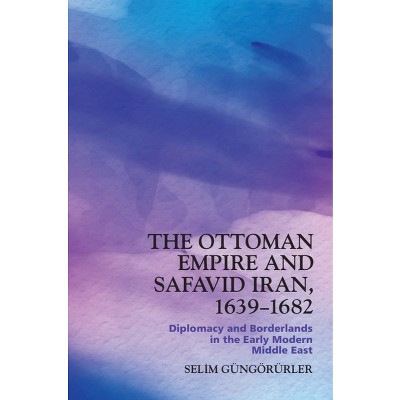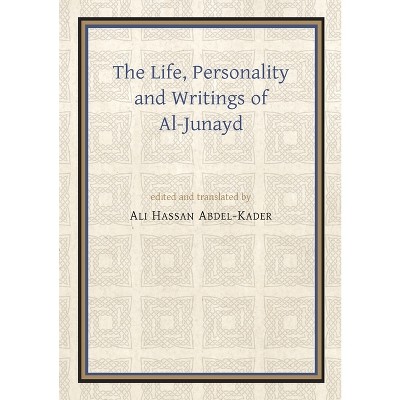Iran's Soft Power in Afghanistan and Pakistan - by Zahid Shahab Ahmed & Ali Akbar (Hardcover)

About this item
Highlights
- This book explores Iran's soft power in two of its eastern neighbours - namely Afghanistan and Pakistan - in key areas including the cultural, religious, social, media, ideological and educational spheres.
- About the Author: Dr Zahid Shahab Ahmed is an Associate Professor in Security and Strategic Studies at National Defense College of the UAE.
- 192 Pages
- History, Middle East
Description
About the Book
Studies Iran's soft power in Afghanistan and Pakistan in cultural, religious, social, ideological and educational spheres.Book Synopsis
This book explores Iran's soft power in two of its eastern neighbours - namely Afghanistan and Pakistan - in key areas including the cultural, religious, social, media, ideological and educational spheres. It explains what resources and instruments Iran has used to project its soft power in the two selected countries since the establishment of the Islamic Republic of Iran in 1979, and how Iran's attempt to increase its reach has been perceived by elites and opinion makers in Afghanistan and Pakistan. It therefore offers the most up-to-date examination of Iranian soft power tools and strategies and how they are received in both countries - topics which have not hitherto been fully explored. The book reflects the ideas of local Afghan and Pakistani participants from civil society, government, military, media, academia, think tanks and policymaking, explaining the extent to which research participants perceived Iranian soft power in a positive or negative manner.Review Quotes
A valuable contribution to understanding the specifics and issues of Iran's soft power policies in individual countries, particularly Afghanistan and Pakistan. The research value is enhanced by its use of not only existing theoretical literature and media publications but also data obtained from qualitative interviews.--Artyom Tonoyan "Contemporary Eurasia"
Iran's Soft Power in Afghanistan and Pakistan is a timely and insightful offering that sheds much needed light on Iranian relations with both of the other states [...] The book will certainly be a useful reference work for scholars interested in Iranian foreign policy and soft power.--Edward Wastnidge, Open University "Middle East Journal"
A fascinating study of the soft-hard power nexus that sheds light on how historical memories, language, culture, institutions and instruments of influence used by Iran have resulted in differing outcomes in Afghanistan and Pakistan, while enabling Tehran to recruit Shi'a youth in these two states to advance its strategic interests in the 'Shi'ite crescent'.--Samina Yasmeen, University of Western Australia
Soft power is not the exclusive preserve of superstates like the US and China in influencing the world around them. Focusing on Iran this new book spotlights the ways Iran brings soft power to bear on neighbouring Afghanistan and Pakistan in shaping the cultural, economic and strategic relations in its immediate region.--Howard Brasted, University of New England
About the Author
Dr Zahid Shahab Ahmed is an Associate Professor in Security and Strategic Studies at National Defense College of the UAE. He is also a Non-Resident Research Fellow at Institute of South Asian Studies, National University of Singapore. During 2017-19, Dr Ahmed was a Non-Resident Research Fellow with the University of Southern California's Center on Public Diplomacy. Previously, he was an Assistant Professor at Centre for International Peace and Stability, National University of Sciences and Technology in Pakistan. His work focuses domestic politics, foreign policies, and international organisations in connection to South Asia and the Middle East. He has published numerous publications in leading journals, such as Politics and Religion, and is the author of Regionalism and Regional Security in South Asia: The Role of SAARC (Routledge, 2013).
Ali Akbar is a Research Fellow at Deakin University and at the University of Melbourne. His research interests include Middle Eastern and Iranian Politics, Modern Islamic Thought, classical and contemporary Qur'anic hermeneutics and Islamic Feminism. His work appeared in a number of key journals, including Middle Eastern Studies, Islam and Christian-Muslim Relations, and Islamic Quarterly. He is the author The Political Discourse of Decline and Backwardness among Contemporary Iranian Intellectuals (Farzan-e Rooz, 2017), written and published in Persian, and co-author of Contemporary Approaches to the Qurʾān and Its Interpretation in Iran (Routledge, 2019).






